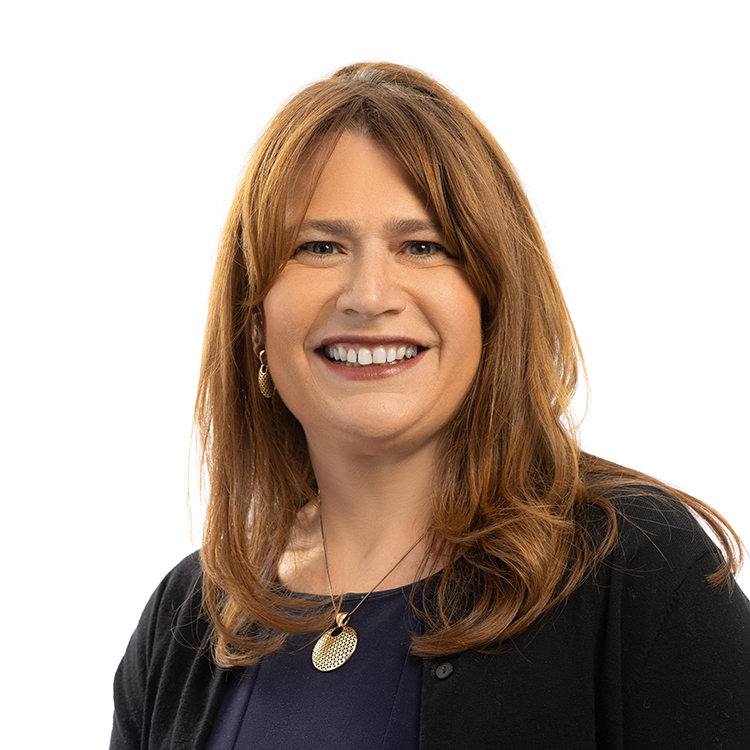A Calling to Criminal Defense Law
Shira Diner strives to make an impact on the criminal legal system on a case-by-case and student-by-student basis.

A Calling to Criminal Defense Law
Shira Diner strives to make an impact on the criminal legal system on a case-by-case and student-by-student basis.
Shira Diner continues a career dedicated to criminal defense litigation and the training of criminal defense lawyers as a lecturer and clinical instructor in the Defender Clinic, one path in the Criminal Law Clinical Program. “I spent 17 years at the public defender’s office,” Diner says. “This has really been my calling since law school.”
During that time, Diner served as a public defender with the Committee for Public Counsel Services (CPCS) in Boston, which oversees the provision of legal representation to indigent persons in both criminal and civil cases as well as administrative proceedings. She most recently served as the supervising attorney, a role charged with training and developing lawyers within the criminal defense unit.
Diner was drawn to a career as a public defender from both a structural and human-centric perspective. “I come at it from a sort of big, systemic place of being troubled by the way the criminal legal system works—or doesn’t work,” Professor Diner says, “but also, from a very individualized place of a deep desire to help each client I have in each case they have. I’ve found over the course of my career that the combination of those two is what really motivates me and has really sustained me.”
At the systemic level, Diner has been serving since 2016 as a commissioner for the Massachusetts Sentencing Commission, where she continues to formulate, develop, and integrate uniform sentencing policies and guidelines for the Commonwealth. She is the current president of the board of the Massachusetts Association of Criminal Defense Lawyers, and former commissioner of the Massachusetts Legislature Special Commission on Bail Reform.
Clinical teaching is just an extension of wanting to continue being the best public defender I can be and helping other people so they, too, can provide the best possible representation as students and in their careers.
Passionate about both public defense and the training of public defenders, the transition from law practice to legal academia has felt like a natural progression for Diner. “I love the community of lawyers who represent indigent people charged with crimes,” she says. “My role in that community has become that of a teacher. Clinical teaching is just an extension of wanting to continue being the best public defender I can be and helping other people so they, too, can provide the best possible representation as students and in their careers.”
Within the BU Law Defender Clinic, Professor Diner supervises students acting as criminal defense counsel pro bono in Boston. Diner also teaches in the Trial Advocacy Program.
Prior to joining BU Law, Diner served as an adjunct clinical professor at Suffolk University Law School, where she developed the Innocence Clinic, a partnership with the New England Innocence Project to screen wrongful conviction applications and recommend cases for post-conviction intervention. During that period, Diner was also the director of associate development and recruitment at Todd & Weld LLP.
Having built her career within the Massachusetts defense community, Professor Diner hopes to be a resource for students by helping to facilitate connections between BU Law and the many organizations that work in the criminal legal system throughout the Commonwealth. “The criminal clinic at BU is one of the oldest criminal clinics in the country,” Diner says. “It’s very well established. I want to continue building on that legacy and look at ways to give students a different kind of experience in addition to what they are currently getting.”
Professor Diner advises students to explore different areas of the law. “Use the opportunity of being in law school to think outside your comfort zone. There are so many different routes one can go down to help individuals, to help companies, to help society—and they all sound one way in the abstract. If you take these three years to dig deeper and think beyond what you came to law school for, you might end up some place completely different.”
Diner is a graduate of the National Criminal Defense College and received her JD from Northeastern University School of Law. After graduating law school, she was a law clerk for the Superior Court of Massachusetts. She received her BA from University of Wisconsin-Madison in Political Science and Hebrew, with a certificate in Women’s Studies. Outside of her work, Diner enjoys traveling and spending time with her family. When she isn’t busy driving her two children around, Diner has started to connect with them on the work she does at BU Law and in the criminal legal system. “Part of the joy and enthusiasm I have about this job has seeped into talking a lot more about work at home,” Diner says, “They pick up on it, and we’re having interesting conversations about what I do. It’s been a nice added benefit.”
“So much of the law is really hard,” Diner says. “The criminal work in particular is straining. It’s emotional. You’re dealing with people whose lives are really, really, really complicated. So having an outlet outside of work, that safe space, is important. It’s something I really try to help people figure out.”